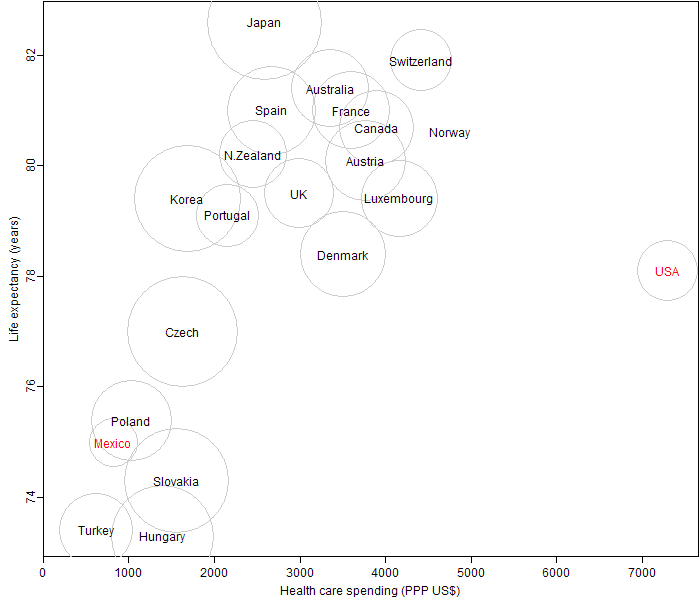- Joined
- Sep 24, 2009
- Messages
- 222
- Reaction score
- 1

comparison of most recent intentional homicide rates
I edited out the countries not on the above chart (most of the ones with higher homicide rates than the USA were 3rd world countries)
Mexico 10.0 (homicides per 100,000 people per year)
Turkey 6.23
United States 5.4
Portugal 2.50
Switzerland 2.26
United Kingdom 2.03
New Zealand 2.00
Canada 1.83
France 1.59
Czech 1.33
Slovakia 1.31
Spain 1.20
Australia 1.2
Italy 1.06
Germany 0.88
Denmark 0.88
Austria 0.73
Norway 0.71
Japan 0.44
** Obviously correlation =/= causation. But when you consider the ages of people most commonly killed, 18-25ish, it makes sense that it could skew the data by the 1-2 years needed to make your graph misleading. That combined with the MVAs and trauma.
Also longevity can vary according to inherent factors of ethnicity. sickle cell anemia, etc.
Not to mention the fact that American culture seems to tolerate obesity more than other cultures. If American obesity rates were to drop, I think health expectancy would shoot way up.



